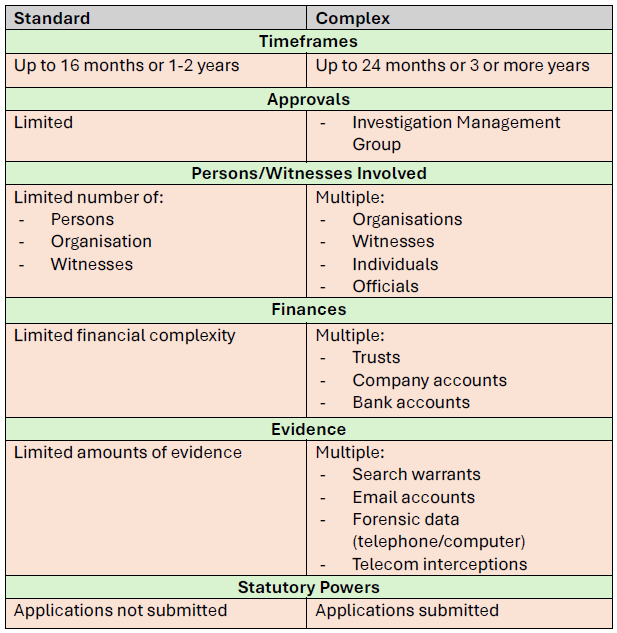The Independent Commission Against Corruption (ICAC) is an independent commission aimed at reducing corrupt activities and monitoring the conduct of NSW public sector officials to ensure public trust in the state government is protected and maintained by conducting independent investigations of allegations of corruption.
Though ICAC reviews each case put before it, not all cases are necessarily actioned. Depending on the nature of the case, ICAC will offer up several options, including:
- Ask the agency that is the subject of the complaint to investigate the matter and report back to the ICAC
- Refer the matter to another agency if ICAC doesn’t have the authority to deal with it the matter (eg a complaint involving an individual rather than a state body)
- Take no action if the matter doesn’t involve corrupt conduct
- Make assessment enquiries to decide whether to take further action
- Give corruption prevention advice to a concerned agency
- Refer a matter to the Director of Public Prosecutions (DPP) for consideration for prosecution if a complaint refers to or is about a single person
- Commence an official investigation
It should be noted that if the matter brought before them originated from both Houses of the NSW Parliament, ICAC will be required to investigate that matter.
Simple Vs. Complex Cases
When initiating an investigation, ICAC needs to determines whether a case is classified as Standard or Complex, as that then informs the scope and associated budget and statutory powers needed to properly investigate a matter. Though all cases are initially identified as ‘standard’ before being potentially reclassified as ‘complex’, the following determines if a case can be labelled ‘complex’:
- Timeframes: Standard investigations are expected to have a limited time frame of 16 months. Complex investigations, by comparison, are expected to take 24 months, if not longer. So should a matter be expected to take 3 or more years, it is deemed complex.
- Approval: If the Investigation Management Group (IMG) prepares a report justifying the need to make a case complex.
- Persons/Witnesses Involved: If the number of individuals (private or public), witnesses, and organisations involved is significant is more than one of each.
- Intricate Finances: If the matter involves multiple trusts, company accounts, bank accounts, and associated users.
- Substantial Evidence: including multiple search warrants, email accounts, intercepted communication, and computer/telephone data.
- Statutory Powers: If statutory powers are required to “productively investigate the matter” – complex.
Statutory Powers
For complex investigations, ICAC can use its statutory powers, which allows for a greater breadth and scope of data and information gathering. This includes:
- Compel the production of documents or information, including from a public authority or official
- Obtain search warrants to investigate properties and copy documents, including properties occupied by public authorities or officials
- Intercept telephone calls and use surveillance devices
- Question witnesses at public and private hearings
In order to obtain permission to apply these extended powers, however, multiple applications must be submitted, considered, and approved by a Commission lawyer, Executive Director of the Legal Division, an authorised local court officers, a Supreme Court judge, and a member of the Administrative Appeals Tribunal, who review each application with respect to the legislative acts that inform its scope, to ensure the intended actions are within the remit of the law.
Key Takeaways
ICAC plays a vital role in prevent and eliminating corruption in public bodies in NSW. By being able to determine the scope and length of a case – and therefore whether it is simple or complex, the anti-corruption body can then best determine how to apply the skills of its 115 strong staff to best serve the public’s interests and ensure that public trust is maintained.
Table: Standard vs. Complex Cases




